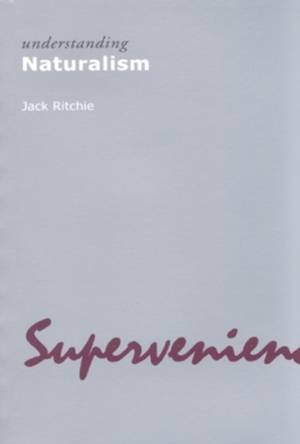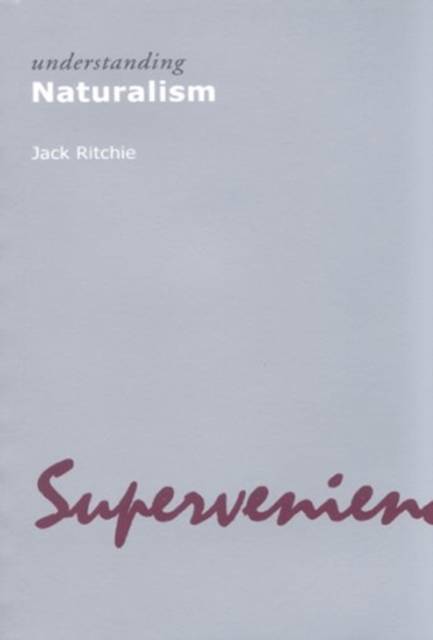
Je cadeautjes zeker op tijd in huis hebben voor de feestdagen? Kom langs in onze winkels en vind het perfecte geschenk!
- Afhalen na 1 uur in een winkel met voorraad
- Gratis thuislevering in België vanaf € 30
- Ruim aanbod met 7 miljoen producten
Je cadeautjes zeker op tijd in huis hebben voor de feestdagen? Kom langs in onze winkels en vind het perfecte geschenk!
- Afhalen na 1 uur in een winkel met voorraad
- Gratis thuislevering in België vanaf € 30
- Ruim aanbod met 7 miljoen producten
Zoeken
Omschrijving
Many contemporary Anglo-American philosophers describe themselves as naturalists. But what do they mean by that term? Popular naturalist slogans like, "there is no first philosophy" or "philosophy is continuous with the natural sciences" are far from illuminating. "Understanding Naturalism" provides a clear and readable survey of the main strands in recent naturalist thought. The origin and development of naturalist ideas in epistemology, metaphysics and semantics is explained through the works of Quine, Goldman, Kuhn, Chalmers, Papineau, Millikan and others. The most common objections to the naturalist project - that it involves a change of subject and fails to engage with "real" philosophical problems, that it is self-refuting, and that naturalism cannot deal with normative notions like truth, justification and meaning - are all discussed. "Understanding Naturalism" distinguishes two strands of naturalist thinking - the constructive and the deflationary - and explains how this distinction can invigorate naturalism and the future of philosophical research.
Specificaties
Betrokkenen
- Auteur(s):
- Uitgeverij:
Inhoud
- Aantal bladzijden:
- 228
- Taal:
- Engels
Eigenschappen
- Productcode (EAN):
- 9781844650781
- Verschijningsdatum:
- 1/11/2006
- Uitvoering:
- Hardcover
- Formaat:
- Genaaid
- Afmetingen:
- 137 mm x 216 mm
- Gewicht:
- 408 g

Alleen bij Standaard Boekhandel
+ 580 punten op je klantenkaart van Standaard Boekhandel
Beoordelingen
We publiceren alleen reviews die voldoen aan de voorwaarden voor reviews. Bekijk onze voorwaarden voor reviews.









